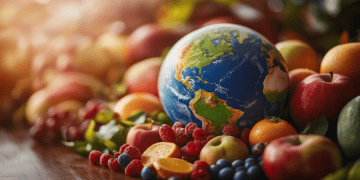South Africa is witnessing a sharp rise in food imports, driven by several interconnected factors. Once known for its agricultural strength, the country now faces declining agricultural output due to changing economic policies, environmental challenges, and population growth. Historically, South Africa’s fertile land and diverse ecosystems made it self-sufficient in food production, with surplus for export. However, the situation has shifted dramatically in recent decades.
Economic policy changes, including the deregulation of the agricultural sector in the early 1990s, opened the market to international trade but made it difficult for local farmers to compete against cheaper imports. This has particularly affected small and medium-sized farmers, reducing the sustainability of local agriculture. Additionally, rising input costs for fuel and fertilizers have made farming more expensive, further squeezing profit margins for farmers.
Climate change has also played a significant role, with frequent droughts impacting rain-fed agriculture. Crops like maize and wheat have been particularly hard-hit, resulting in reduced domestic food availability and rising prices. Experts believe that unless substantial adaptation measures are taken, South Africa’s agricultural future will remain uncertain.
Meanwhile, the country’s growing population, projected to reach 80 million by 2050, is placing increased pressure on food systems. Urbanization is also reducing the availability of arable land for farming, further intensifying the need for food imports. The rising demand for food, coupled with shrinking domestic production, has led to greater reliance on foreign imports to meet the country’s needs.
Food imports have become increasingly expensive due to higher freight costs and the weakening of the South African rand. This has contributed to inflation, disproportionately affecting low-income households and raising concerns about food insecurity. Currently, about 30 million South Africans face food insecurity each month, with malnutrition-related health issues becoming more prevalent.
To address these challenges, experts recommend increased investment in the agricultural sector, including improving irrigation systems, promoting drought-resistant crops, and supporting small-scale farmers. Ensuring long-term food security also requires preserving arable land and transitioning to sustainable farming practices.
Your go-to source for supply chain logistics news updates: The Supply Chain Report. Enhance your international trade knowledge at ADAMftd.com.
#SouthAfricaAgriculture #FoodSecurity #TradeNews #EconomicDevelopment #ClimateImpact















